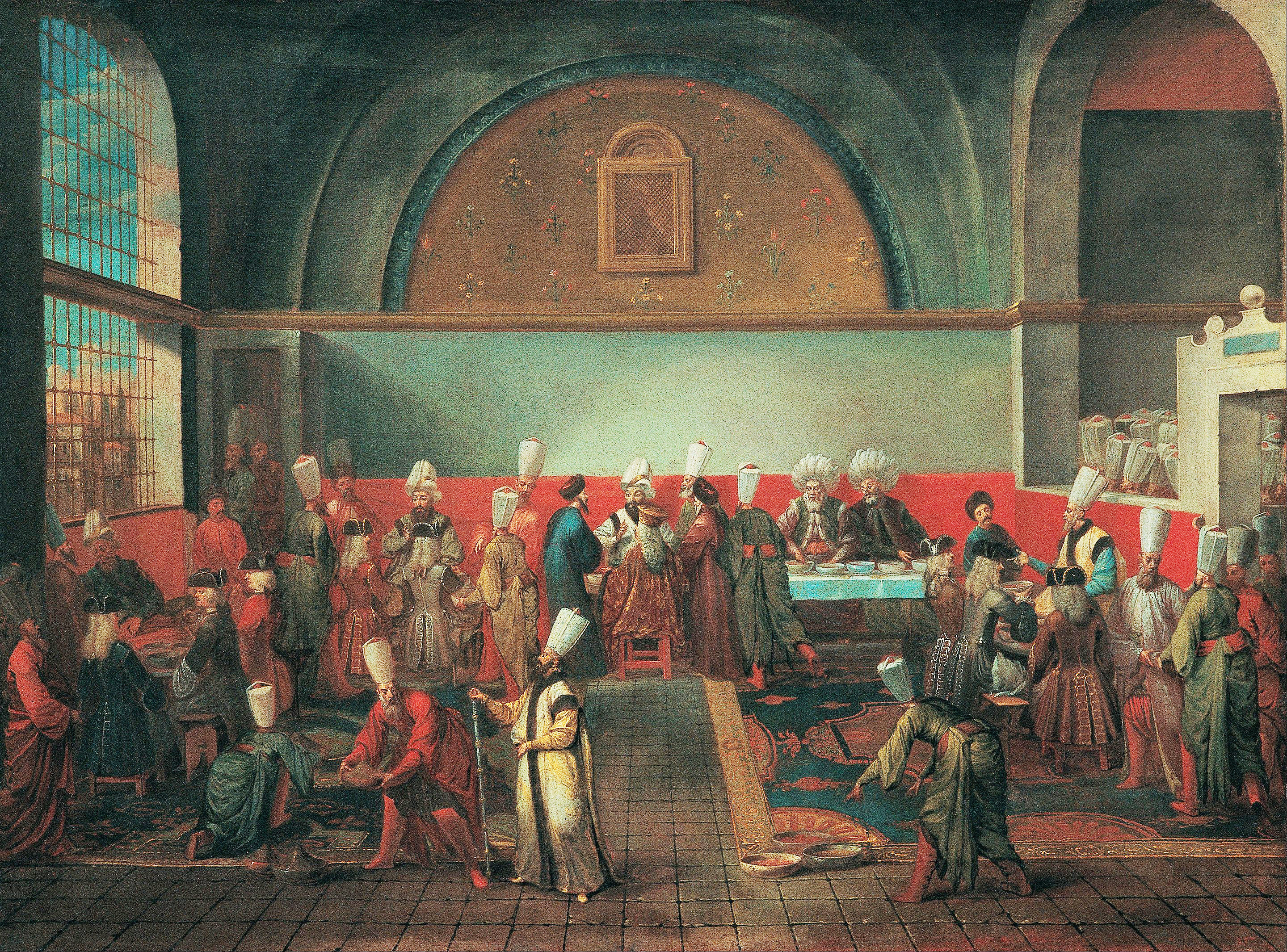
Foreign ambassadors being received at the Topkapı Palace in Istanbul, Jean Baptiste Vanmour, ca. 1700s
Islam is arguably the fastest-growing religion in the world today, which raises questions and concerns for Western societies that have growing Muslim populations. If Muslims were to become a majority community one day, how would they treat their neighbors? What would they contribute, and what would they have to offer to Western societies? These questions rightfully worry native populations, and as Islam spreads, the public discourse tends to become dominated by answers from security experts, journalists, and politicians who have little or no grounding in Islam.
As we shall see, the Islamic tradition— in particular, its political history and jurisprudence—addresses these worries: simply put, in Islamic law, all human beings possess inviolability, regardless of their creed, color, class, or culture. This surprising legal maxim and its religious and philosophical justification deserve to be explored, as well as its implications for Muslims negotiating religious pluralism.
The classical books of Islamic jurisprudence and the history of Muslim rule extending from India to the Balkans testify—conceptually and practically—to the inviolability of all human beings in Islam. Moral, legal, and political theories in Islam, as well as state practices over a vast geography across centuries, assure us that Muslims—if grounded in their tradition—would carry good tidings to today’s societies. Thus, growing numbers of Muslims represent an opportunity, not a threat, to liberal Western societies.
But today’s Muslims, unlike their predecessors or traditions, carry the burden of proof, especially given the relentless anti-Muslim propaganda fueling public fear about Islam and creating adversity between Muslims and their neighbors. This means Muslims must reverse the tragic loss of their social memory and restore the disconnect from their own intellectual, political, and moral history; they face the daunting task of relearning their own tradition so they can articulate, and represent, what Islam can contribute to the commonweal.
Driven by the unprecedented increase in geographic mobility in the modern age, societies around the world have rapidly increased in social diversity. Yet some ideologies see diversity as a threat to their homogeneous culture and seek to erase diversity, an impulse that contradicts the Islamic vision. Muslims always understood diversity as a God-given condition of human society, necessitating its careful management for a moral, just, and peaceful society. Far from being an epiphenomenon, diversity reflects God’s ultimate and endless power. God uniquely manifests Himself in every creature, and because divine manifestation never repeats, each human being differs from every other— we are a collection of individuals, not a collective mass. But we also have a common denominator—namely, our humanity, or ādamiyyah in Arabic.
The Qur’an repeatedly makes it explicit that social diversity is the will of God and that created beings cannot make diversity disappear through forced conversions, expulsions, or other means. Thus, Islamic social thought seeks not to extinguish diversity, an ambition doomed to fail, but to manage it in a way that allows all individuals to flourish. Modern and postmodern ideologies, which desire to redesign human beings according to their standards, inevitably fail—after causing suffering and bloodshed—because they oppose God’s will.
In Islam, the management of diversity is grounded in the laws of brotherhood (ĥuqūq al-ukhuwwah), which have three tiers: the universal tier is brotherhood in Ādamiyyah, next is brotherhood in Ibrāhīmiyyah, and third is brotherhood in Muĥammadiyyah. Islamic law and morality define the laws in each tier.
Brotherhood in Ādamiyyah affirms that Adam—the first human and the first messenger of God, who descended from paradise to earth—is the father of all humanity; thus all human beings across time are brothers in Ādamiyyah. Other terms for this tier include brotherhood in substance (literally, “brotherhood in ash,” al-ukhuwwah fī al-tīn) because all human beings are created from soil.